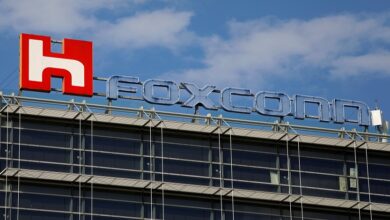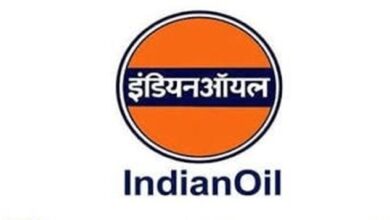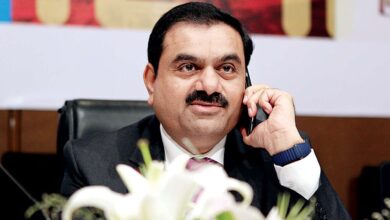Hyundai Motor Company: From Scandals to Settlements – The Inside Story?

Has Hyundai Motor Company been involved in any scams or legal controversies that have impacted its reputation and operations? Hyundai Motor Company, a prominent South Korean multinational automotive manufacturer, has made significant strides in the global automotive industry. With a rich history spanning several decades, Hyundai has become renowned for its innovative vehicles and commitment to excellence. However, amidst its success, the company has also faced various challenges and controversies.
Throughout the years, many prominent corporations have faced scandals and legal issues that have had far-reaching consequences. From allegations of diesel cheating to high-profile lawsuits, Hyundai’s involvement in such controversies has had a significant impact on its brand image and public perception. This begs the question: has Hyundai Motor Company experienced any similar challenges that have threatened its reputation or led to legal ramifications?
-
Founding and Founders

Chung Ju-Yung- Founder, Hyundai Motor Company
Hyundai Motor Company was founded on December 29, 1967, by Chung Ju-Yung, an influential and visionary entrepreneur. Chung, along with a group of investors, laid the foundation for what would become one of the world’s leading automobile manufacturers.
Born in 1915 in what is now North Korea, Chung Ju-Yung possessed an innate entrepreneurial spirit and a determination to contribute to his country’s economic development. In 1947, he founded Hyundai Engineering and Construction Company, which initially focused on construction projects but later diversified into various industries.
Recognizing the potential of the automotive sector, Chung expanded Hyundai’s operations to include the manufacturing of automobiles in 1967. This marked a significant milestone in the company’s history, and it was subsequently renamed Hyundai Motor Company in 1975 to reflect its commitment to the automotive industry.
Chung Ju-Yung’s leadership and entrepreneurial vision were instrumental in establishing Hyundai Motor Company as a major player in the global automotive market. His relentless pursuit of innovation, quality, and customer satisfaction laid the foundation for Hyundai’s success and growth. Chung’s legacy as the founder of Hyundai Motor Company continues to inspire the company’s values and drive its commitment to excellence in the present day.
2. Early Days and Objectives

In its early days, Hyundai Motor Company was initially called Hyundai Engineering and Construction Company before changing its name to Hyundai Motor Company in 1975. While the company began as an engineering and construction firm, it diversified its operations to include the automotive sector in 1967. This strategic move marked the company’s foray into the world of automobile manufacturing.
During its early years, Hyundai’s initial products and services focused on small passenger cars and commercial vehicles. The Hyundai Pony, introduced in 1975, was one of the company’s earliest offerings and served as a milestone in its automotive journey. The Pony was a compact car that aimed to capture the attention of the market with its affordability, functionality, and modern design.
The objective and motive behind Hyundai’s foray into the automotive industry were multi-fold. Firstly, the company sought to contribute to the economic growth of South Korea by developing a domestic automotive manufacturing industry. By establishing a strong manufacturing base for automobiles, Hyundai aimed to create employment opportunities and boost the country’s industrial sector. Additionally, Hyundai aimed to meet the growing demand for affordable and reliable transportation options in the domestic and international markets, thereby improving accessibility and mobility for people from all walks of life.
3. Early Hindrances and Challenges
During its early years, Hyundai Motor Company encountered several hindrances and challenges that tested its resilience and determination. One of the initial obstacles faced by the company was a shortage of capital. As a relatively new entrant in the global automotive market, Hyundai had limited financial resources compared to well-established competitors. This constrained their ability to invest in research and development, marketing, and expanding their production capacity.
Another significant challenge was the lack of brand recognition. Hyundai had to overcome skepticism and build credibility among consumers who were accustomed to established automotive brands. Early Hyundai vehicles faced criticism for their reliability and perceived quality issues. Overcoming these perceptions required significant efforts in improving product quality and establishing trust through consistent performance and customer satisfaction.
Furthermore, Hyundai faced intense competition from global automakers with long-standing reputations and established customer bases. Competing against well-known brands necessitated Hyundai to differentiate itself through unique features, competitive pricing, and innovative designs. Despite these challenges, Hyundai Motor Company persevered and strategically focused on continuous improvement. By addressing quality concerns, investing in research and development, and adopting customer-centric approaches, Hyundai gradually earned the trust of consumers and successfully established itself as a formidable player in the automotive industry.
4. Current Ownership and Name

As of the latest available information, Hyundai Motor Company is a publicly traded company with shareholders holding ownership. Hyundai Motor Group, a conglomerate with diverse business interests, holds the majority of shares in Hyundai Motor Company.
Unsoo Kim, an accomplished business leader, holds a prominent position within Hyundai Motor Company. He serves as the Managing Director and Chief Executive Officer of Hyundai Motor India Limited, a subsidiary of Hyundai Motor Company. Unsoo Kim brings a wealth of experience and expertise to his role, overseeing the operations and strategic direction of Hyundai’s business in India.
Under Unsoo Kim’s leadership, Hyundai Motor India Limited has witnessed significant achievements, including the successful launch of new models, expansion of the company’s footprint in the Indian market, and implementation of innovative strategies to enhance customer satisfaction. His visionary approach and commitment to excellence continue to drive Hyundai’s growth and strengthen its position in the competitive Indian automotive landscape.
As Hyundai Motor Company continues to thrive globally, leaders like Unsoo Kim play a vital role in shaping the company’s future, fostering innovation, and delivering exceptional value to customers.
5. Current Products and Services
In addition to being a renowned automobile manufacturer, Hyundai Motor Company, a part of the Hyundai Group, offers a diverse range of products and services that extend beyond the automotive industry. While the primary focus remains on designing, manufacturing, and selling vehicles, Hyundai Group’s divisions contribute to various sectors.
Hyundai Group encompasses divisions involved in the production and export of diesel and electric locomotives, freight cars, and passenger coaches for the railroad industry. These divisions leverage Hyundai’s engineering expertise to provide reliable and technologically advanced solutions for the transportation sector. The company’s commitment to quality and innovation extends to these divisions, ensuring the delivery of efficient and sustainable railway solutions.
Furthermore, Hyundai Group is involved in the manufacturing and supply of offshore drilling and extraction equipment to the oil industry. Leveraging its engineering capabilities, the company offers advanced equipment and technologies that enable safe and efficient oil exploration and extraction operations.
By diversifying its offerings across multiple sectors, Hyundai Group showcases its commitment to excellence and technological innovation. Through its various divisions, the group reinforces its presence as a global player, delivering high-quality products and services that cater to the evolving needs of industries beyond automotive manufacturing.
6. Global Expansion
Hyundai Motor Company’s global expansion has taken the brand far beyond its South Korean roots, reaching various regions across the globe. The company’s commitment to localizing production and understanding regional customer preferences has enabled it to establish a strong presence in multiple continents, including Asia & Pacific, North America, South and Central America, Africa, and the Middle East.
In Asia & Pacific, Hyundai has made significant strides, with a strong presence in countries such as India, China, Japan, Australia and more. The company’s ability to adapt to diverse markets in this region has contributed to its success, as it caters to the unique needs and preferences of Asian consumers.
In North America, Hyundai has established manufacturing facilities in the United States, Canada and Mexico enabling it to produce vehicles locally and enhance its market competitiveness. The brand has gained recognition for its reliable and fuel-efficient vehicles, contributing to its growing market share in the region.
South and Central America have also been key markets for Hyundai’s expansion. Countries like Brazil, Chile, Bolivia, Argentina and more have witnessed Hyundai’s growing presence, thanks to the company’s focus on offering high-quality vehicles that appeal to the preferences of Latin American consumers.
Hyundai’s expansion into Africa and the Middle East has allowed it to tap into emerging markets and capitalize on the region’s growing demand for automobiles. The brand’s presence in countries like South Africa, Saudi Arabia, the United Arab Emirates and more has strengthened its global footprint.
Through its strategic global expansion efforts, Hyundai Motor Company has successfully positioned itself as a trusted and respected automotive brand in these regions, delivering vehicles that cater to diverse markets and driving its growth on a global scale.
7. Key Performance Indicators (KPIs)
Key Performance Indicators (KPIs) play a crucial role in assessing the performance and success of a company. In the case of Hyundai Motor Company, here are five important KPIs that are closely monitored:
- Vehicle Sales Volume: The number of vehicles sold is a fundamental KPI for Hyundai. It reflects the company’s market demand, competitiveness, and ability to attract customers. Increasing sales volume indicates a strong market presence and a successful product portfolio.
- Market Share: Hyundai closely tracks its market share, which represents the percentage of total vehicle sales it captures in specific regions or segments. A higher market share signifies Hyundai’s strength in the market, its ability to outperform competitors, and its overall industry standing.
- Customer Satisfaction Ratings: Maintaining high customer satisfaction is paramount for Hyundai. Measuring customer satisfaction through surveys and feedback allows the company to gauge the quality of its products, after sales services, and overall customer experience. Positive customer satisfaction ratings indicate brand loyalty and the potential for repeat purchases.
- Research and Development Expenditure: Hyundai allocates a significant portion of its resources to research and development (R&D). Tracking R&D expenditure as a KPI helps assess the company’s commitment to innovation, technological advancements, and staying ahead in an ever-evolving automotive industry.
- Sustainability Metrics: As sustainability becomes increasingly important, Hyundai focuses on measuring and improving its environmental and social impact. KPIs such as carbon emissions reduction, energy efficiency, and responsible supply chain management demonstrate Hyundai’s dedication to sustainable practices and its efforts to contribute positively to society.
By monitoring these KPIs, Hyundai Motor Company can evaluate its performance, make informed decisions, and continuously strive for growth, customer satisfaction, innovation, and sustainability in the automotive industry.
8. Legal Challenges and Scams
Hyundai Motor Company, like many other large corporations, has encountered legal challenges and controversies throughout its history. Here, we highlight some notable instances of legal issues and scams involving Hyundai Motor Company, based on information from various sources.
In July 2022, a diesel cheating scandal involving Hyundai. According to the article, Hyundai was accused of manipulating emissions data in their diesel vehicles sold in Europe, similar to the scandal that plagued Volkswagen. The investigation alleged that the companies used software that allowed the vehicles to emit lower levels of pollutants during official emissions tests. This revelation resulted in fines and legal consequences for Hyundai and Kia, tarnishing their reputation and causing financial implications.
Another noteworthy legal issue involving Hyundai Motor Company was reported in September 2007. The then-chairman of Hyundai, Chung Mong-Koo, faced legal troubles relating to embezzlement and breach of trust. Chung was accused of misusing company funds for personal purposes. Following a high-profile trial, Chung was convicted and sentenced to three years in prison, which was later reduced to a suspended sentence on appeal. This incident had a significant impact on the company’s image and governance practices.
In 2022, Hyundai Motor Company faced backlash and controversy following a tweet from its official Twitter handle in Pakistan. According to reports, the tweet contained an inappropriate reference to the Pakistani Prime Minister, which sparked public outrage and demands for an apology. While not a legal issue per se, the incident had reputational consequences for the company, highlighting the importance of responsible social media management.
Additionally, in May 2023, Hyundai had settled a lawsuit related to the theft of trade secrets. The lawsuit alleged that a former Hyundai engineer stole trade secrets and shared them with his new employer, a Chinese electric vehicle startup. The settlement involved Hyundai agreeing to pay an undisclosed amount to the startup, with the terms of the settlement remaining confidential.
These legal issues and scams highlight the challenges faced by Hyundai Motor Company in maintaining ethical practices and complying with legal regulations. Such incidents have the potential to damage the company’s reputation, incur financial penalties, and impact consumer trust.
9. Financial Overview
Hyundai Motor Company has demonstrated a strong financial performance, reflecting its position as a global leader in the automotive industry. The company’s financial figures highlight its growth and success in recent years.
With a market capitalization of 312.30 trillion INR, Hyundai Motor Company holds a substantial valuation in the market. This indicates the confidence investors have in the company’s prospects and its ability to generate value for shareholders.
In the first quarter of the fiscal year ending in March 2023, Hyundai Motor Company witnessed significant growth in revenue. The company reported a remarkable year-over-year increase of 24.7 percent, with quarterly revenue reaching 2.35 trillion INR. This growth can be attributed to factors such as strong demand for Hyundai vehicles, successful product launches, and effective market strategies.
Moreover, Hyundai Motor Company’s operating profit for the same period saw a remarkable surge. The company achieved an 86.3 percent year-over-year increase in operating profit, reaching a quarterly record of 20 billion INR. This robust growth in operating profit reflects Hyundai’s ability to improve efficiency, control costs, and optimize its operations.
However, it is important to note that Hyundai Motor Company also carries a significant amount of debt. As of the fiscal quarter ending in March 2023, the company’s debt stood at 116.45 trillion INR. While this indicates the utilization of debt to support the company’s growth and investment activities, it also signifies the need for prudent financial management to ensure long-term sustainability.
Overall, Hyundai Motor Company’s financial performance showcases its strength and resilience in the highly competitive automotive industry. The company’s impressive revenue growth, record-breaking operating profit, and substantial market capitalization position it for continued success and profitability. Moving forward, effective management of debt and strategic financial planning will be crucial to maintaining Hyundai’s growth trajectory and maximizing shareholder value.
10. Additional Information
In addition to the mentioned scams and lawsuits, it is important to note that in 2014, Hyundai Motor Company faced a significant setback when it had to recall millions of vehicles due to safety concerns. The recall was initiated due to faulty brake lights, corrosion in suspension components, and other issues that could compromise driver and passenger safety. The recall process was a costly endeavor for the company and impacted its reputation for quality and reliability. Hyundai took swift action to rectify the problems and implemented measures to improve its quality control processes to regain customer trust.
Conclusion
Hyundai Motor Company’s journey from a fledgling automobile manufacturer to a global automotive powerhouse is a testament to its dedication to excellence and innovation. By consistently delivering high-quality vehicles and adapting to evolving market demands, Hyundai has gained the trust and loyalty of customers worldwide. With a focus on sustainable growth, cutting-edge technology, and customer satisfaction, Hyundai Motor Company continues to shape the future of the automotive industry.








